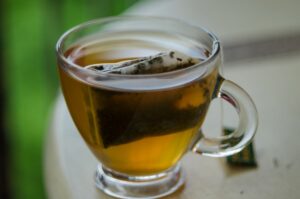Welcome to our comprehensive guide on managing hot flashes with over-the-counter (OTC) treatments. If you’re one of the many individuals experiencing the sudden and intense waves of heat associated with hot flashes, you’re not alone. Whether you’re navigating menopause, experiencing hormonal changes, or dealing with another underlying cause, finding effective relief is crucial. In this blog, we’ll explore a range of accessible hot flashes OTC treatments to help you stay cool and comfortable during these challenging moments.
Contents
When To Consider Hot Flashes OTC Treatments?
 Considering over-the-counter (OTC) treatments for hot flashes can be beneficial when you experience significant discomfort or disruption to your daily life due to these symptoms. Here are some situations and signs that may indicate it’s time to explore OTC options for managing hot flashes:
Considering over-the-counter (OTC) treatments for hot flashes can be beneficial when you experience significant discomfort or disruption to your daily life due to these symptoms. Here are some situations and signs that may indicate it’s time to explore OTC options for managing hot flashes:
- Frequency and Intensity: If you are experiencing hot flashes frequently and they are disrupting your daily activities or sleep, OTC treatments may provide relief.
- Impact on Quality of Life: When hot flashes significantly affect your quality of life, causing emotional distress, irritability, or anxiety, it may be a good time to consider OTC solutions.
- Non-Hormonal Approach Preference: For individuals who prefer non-hormonal approaches to managing symptoms, OTC treatments offer an alternative to hormone-based therapies.
- Unwillingness or Ineligibility for Prescription Medications: If you are unwilling or ineligible for prescription medications due to personal preferences, medical history, or contraindications, OTC options become a valuable consideration.
- Mild to Moderate Symptoms: OTC treatments are often suitable for those experiencing mild to moderate hot flashes. If your symptoms fall within this range, non-prescription solutions may effectively provide relief.
- Holistic Management Approach: OTC treatments can be part of a holistic approach to managing hot flashes, complementing lifestyle changes and other self-care practices.
Always remember to consult with a healthcare professional before starting any new treatment regimen, including OTC options. They will help to ensure they are safe and suitable for your specific situation. They can provide personalized advice based on your health history and the severity of your hot flashes.
What Are Some Examples Of Hot Flashes OTC Treatment?
Several over-the-counter (OTC) treatments are commonly used to manage hot flashes. It’s important to note that the effectiveness of these treatments can vary among individuals, and consulting with a healthcare professional before starting any new regimen is advisable. Here are some examples of hot flashes OTC treatment:
Herbal Supplements
Black cohosh is derived from the root of the plant and has been traditionally used to alleviate menopausal symptoms, including hot flashes. While some studies suggest potential benefits, results have been mixed, and its mechanism of action is not fully understood. It’s important to note that individual responses vary, and not everyone experiences relief from black cohosh. As with any supplement, consulting with a healthcare professional is crucial.
Vitamin E
Vitamin E, known for its antioxidant properties, has been explored as a potential remedy for hot flashes. Some studies suggest that it may help reduce the frequency and severity of symptoms. However, evidence is not conclusive, and high doses of vitamin E can have adverse effects. Before incorporating vitamin E supplements into your routine, consult with a healthcare provider to determine the appropriate dosage and assess potential interactions.
Soy and Isoflavones
Soy products, such as soybeans and tofu, contain compounds called isoflavones that mimic estrogen in the body. Some individuals find relief from hot flashes by incorporating soy-based foods into their diet or taking isoflavone supplements. However, results vary, and soy may not be suitable for everyone. Individuals with estrogen-sensitive conditions should exercise caution, and consulting with a healthcare professional is advised.
Evening Primrose Oil
Evening primrose oil, rich in gamma-linolenic acid, has been explored for its potential to manage menopausal symptoms, including hot flashes. While some women report benefits, scientific evidence is limited, and results are inconclusive. As with any supplement, it’s essential to consult with a healthcare provider, especially for individuals with underlying health issues or those taking medications that may interact with the oil.
Cooling Products
 OTC cooling products, such as wipes and patches, aim to provide instant relief during a hot flash. Cooling wipes, often infused with soothing ingredients like aloe vera, can be applied to the face and neck. Cooling patches, usually adhesive and applied to the skin, deliver a refreshing sensation. While these products don’t address the root cause of hot flashes, they offer a practical and immediate solution for managing the discomfort associated with these episodes. Keep in mind that personal preferences vary, and experimenting with different cooling products may be necessary to find what works best for you.
OTC cooling products, such as wipes and patches, aim to provide instant relief during a hot flash. Cooling wipes, often infused with soothing ingredients like aloe vera, can be applied to the face and neck. Cooling patches, usually adhesive and applied to the skin, deliver a refreshing sensation. While these products don’t address the root cause of hot flashes, they offer a practical and immediate solution for managing the discomfort associated with these episodes. Keep in mind that personal preferences vary, and experimenting with different cooling products may be necessary to find what works best for you.
Aromatherapy
Peppermint oil, with its invigorating scent, is often used in aromatherapy to provide a sense of coolness. Some individuals find relief from hot flashes by inhaling peppermint oil or applying diluted oil to pulse points. While the evidence supporting the efficacy of aromatherapy is anecdotal, many appreciate the calming and cooling effects of this essential oil. As with any concentrated oil, it’s essential to use caution and perform a patch test to ensure you don’t have any adverse reactions. Individuals with respiratory conditions should also be mindful of inhaling essential oils.
Herbal Teas
Sage tea, derived from the leaves of the sage plant, is thought to have mild estrogenic effects, making it a popular choice for managing hot flashes. Some women find relief by incorporating sage tea into their daily routine. However, the scientific evidence supporting its effectiveness is limited, and individual responses may vary. If considering herbal teas as part of your hot flash management strategy, it’s advisable to consult with a healthcare professional.
Acupuncture Bracelets
Acupuncture bracelets are designed with beads or pressure points that claim to alleviate hot flashes when worn on the wrist. The concept is based on the principles of traditional Chinese medicine. While some individuals report positive experiences, scientific evidence supporting the effectiveness of acupuncture bracelets for hot flashes is scarce. As with many complementary therapies, individual responses can vary. If interested in trying acupuncture bracelets, it’s crucial to approach them with an open mind and consult with a healthcare professional for personalized advice.
Dietary Changes
Flaxseed, rich in lignans and omega-3 fatty acids, has been investigated for its potential to regulate hormonal fluctuations and reduce the frequency of hot flashes. Some women incorporate ground flaxseed into their diet to manage symptoms. While research on flaxseed’s effectiveness is ongoing, preliminary studies suggest a potential benefit. As with any dietary change, moderation is key, and individuals should ensure it’s a safe addition to their diet.
It’s crucial to approach OTC treatments with caution and be aware of potential interactions with other medications or underlying health conditions. Moreover, what works for one person may not work for another. So it may take some trial and error to find the most effective approach for managing hot flashes.

 In addition to the discussed points, several natural strategies may help alleviate or reduce the frequency of hot flashes:
In addition to the discussed points, several natural strategies may help alleviate or reduce the frequency of hot flashes:
